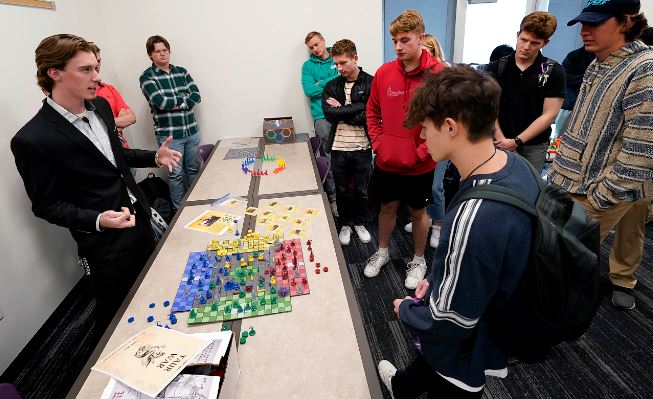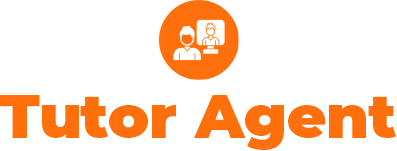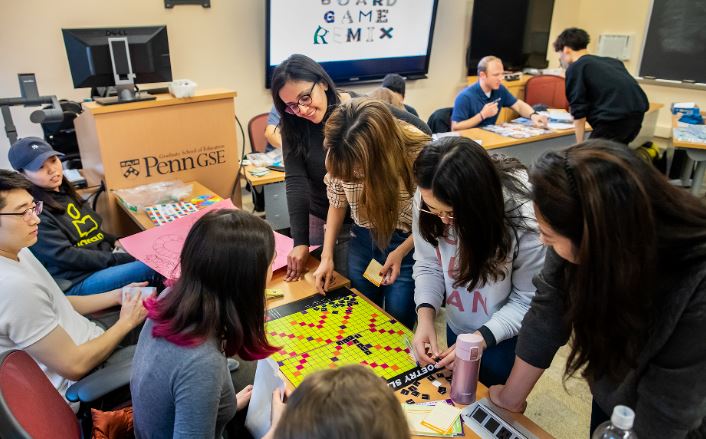Injecting an element of playfulness into tutoring sessions can significantly enhance engagement and deepen the learning experience. Educational board games, with their interactive nature, provide an effective avenue for enjoyably reinforcing academic concepts. In this guide, we’ll explore how to seamlessly integrate educational board games into tutoring sessions, creating a dynamic learning environment that sparks curiosity and fosters academic growth.

Selecting the Right Educational Board Games
The first step in leveraging board games for tutoring is to carefully choose games aligned with the academic goals. Opt for games that reinforce specific subjects or skills, such as math, language arts, science, or critical thinking. Popular choices include “Scrabble” for language skills, “Math Bingo” for arithmetic, and “Codenames” for critical thinking and vocabulary.
Incorporating Games into Lesson Plans
Integrate these games strategically into lesson plans to supplement traditional teaching methods. For instance, use “Monopoly” to teach financial literacy or “Timeline” to explore historical events.
Setting Clear Learning Objectives
Define clear learning objectives for each board game session. Whether it’s improving vocabulary, enhancing critical thinking, or reinforcing mathematical concepts, having specific goals ensures that the game serves as a purposeful tool for academic growth.
Ensuring Age-Appropriate Challenges
Tailor the complexity of the games to the age and academic level of the student. This ensures that the challenges presented are both engaging and developmentally appropriate. Adjust game rules or introduce variations to match the student’s proficiency, promoting a balance between fun and educational content.
Creating a Positive Learning Atmosphere
Foster a positive and encouraging atmosphere during board game sessions. Emphasize the enjoyment of learning through play, reducing the pressure often associated with academic tasks.
Encouraging Collaboration and Communication
Moreover, many educational board games thrive on collaboration and communication. Use games that require teamwork, discussion, and problem-solving, promoting valuable interpersonal skills. Games like “Pandemic” or “Forbidden Island” encourage players to work together towards a common goal, fostering communication and cooperation.
Providing Structured Debriefing
After each game session, engage in a structured debriefing to discuss key takeaways. Encourage students to reflect on the connections between gameplay and academic concepts. Hence, this reflective process reinforces the learning outcomes and helps students recognize the real-world applications of the skills acquired during the game.
Utilizing Board Games for Reinforcement
Use these games as a reinforcement tool for specific lessons or topics. For example, if tutoring a student on multiplication, incorporating a game like “Multiplication Bingo” or “Math Dice” can provide hands-on practice and enjoyably reinforce the learned concepts.
Integrating Educational Board Games Online
Explore online platforms that offer digital versions of educational games. This opens up opportunities for remote tutoring sessions or additional practice outside regular lessons. Hence, websites and apps like “Quizizz,” “Kahoot!,” or educational game platforms can complement traditional games.
Customizing Board Games for Individual Needs
Modify board game rules or components to cater to individual learning needs. For instance, create personalized word cards for “Scrabble” with vocabulary relevant to the student’s current lessons. Hence, this customization ensures that the board game aligns closely with the student’s academic requirements.
Incorporating Review Games
Use these games as a dynamic way to review previously learned material. Create review games based on academic content, transforming conventional review sessions into engaging competitions.
Employing Board Games for Skill Development
Furthermore, leverage board games to target specific skill development areas. Games like “Chess” enhance strategic thinking, while “Cranium” encourages creativity and diverse problem-solving skills. Tailor game choices to address the unique learning objectives and skill gaps of each student.
Conclusion
Incorporating educational board games into tutoring sessions transforms the learning experience into an exciting adventure. The marriage of play and academics fosters engagement, critical thinking, and a genuine love for learning. By carefully selecting games, setting clear objectives, and creating a positive atmosphere, tutors can harness the educational potential of board games to empower students and make the learning journey truly enjoyable. Hence, board games aren’t just for fun; they’re a gateway to academic excellence and a lifelong love for learning.




